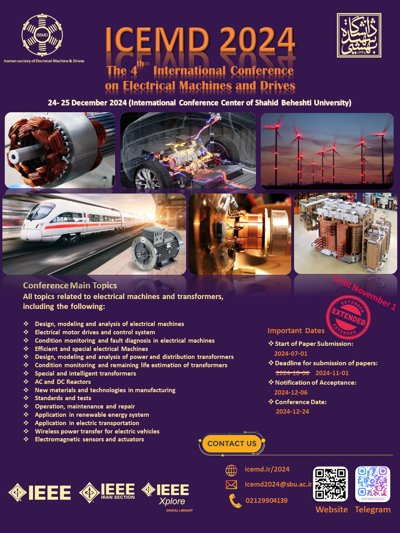0% Complete
نویسندگان :
کلمات کلیدی :
چکیده :
لیست مقالات بایگانی شده
Sadegh Mollaei Saghin - Aghil Ghaheri - Ebrahim Afjei
Hawraa Ali - Ali Mahdi - Manal Nawir
Milad Maleki - Hamed Gorginpour
Moein Farhadian - Farshad KIANI - AmirAbbas Vahaj - Hamed Tahanian
Amirhossein Ghadamossoltani - Mohammadali Sandidzadeh - Mohammad Mosavi Gazafroodi - Farzaad Soleimaani
Soheil Khosrogorji - Hossein Torkaman - Hao Chen
Alireza Sohrabzadeh - Aghil Ghaheri
S. Alireza Davari - Mahdi S. Mousavi - Amir Hosein Valiloo - Freddy Flores - Majid Rahmani - Yuzhe Zhang - Zhenbin Zhang - Jose Rodriguez
فاطمه زارع - فرید توتونچیان



